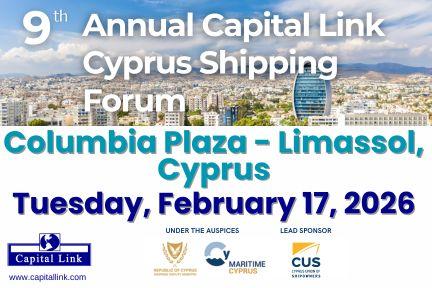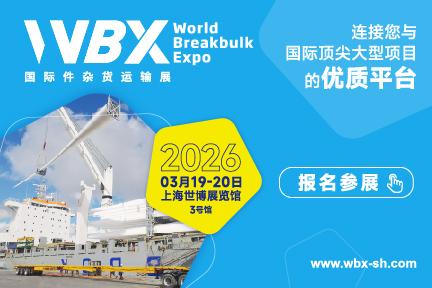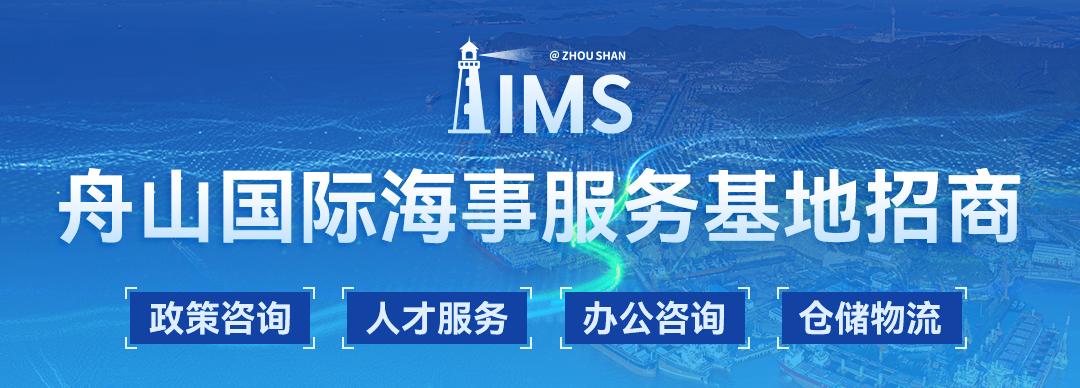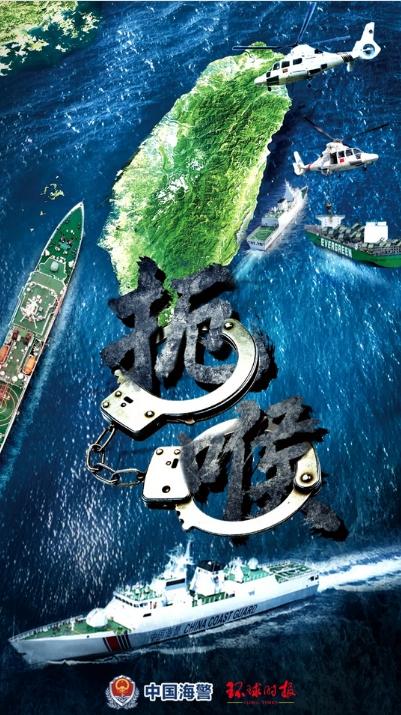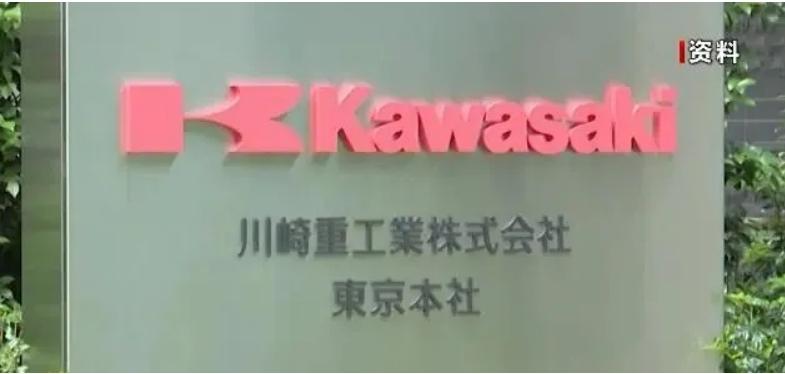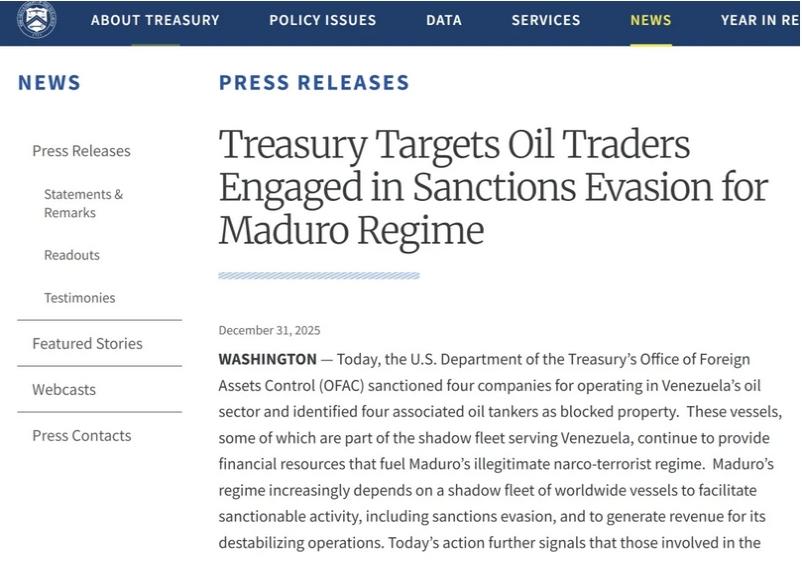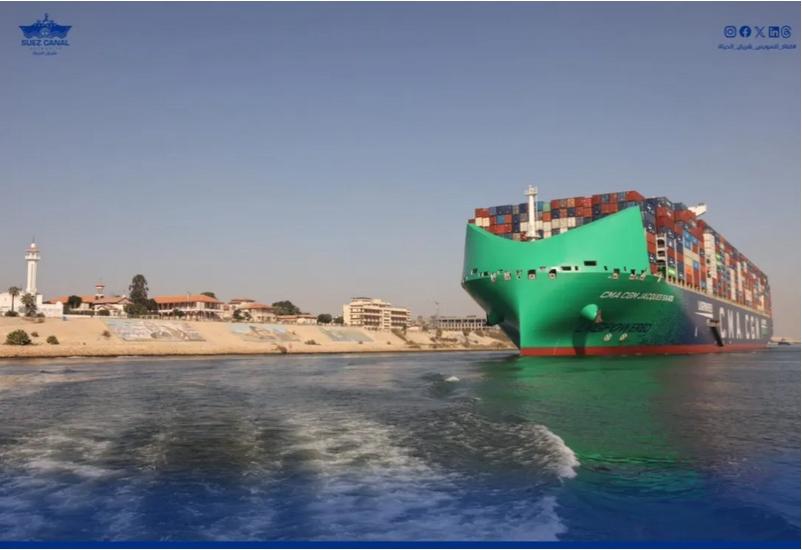 【摘要】在台风季节,南方港口频繁受到台风影响,给船东造成很大的损失;另一方面,市场上出现合同港口名称前只写safeberth而没有safe port的情况。本文通过对几个伦敦仲裁判例的简要分析,再结合实际情况,来解释分析一下频繁的台风是否能构成一个港口的基本属性及租家在租约中保证港口安全的重要性。
【摘要】在台风季节,南方港口频繁受到台风影响,给船东造成很大的损失;另一方面,市场上出现合同港口名称前只写safeberth而没有safe port的情况。本文通过对几个伦敦仲裁判例的简要分析,再结合实际情况,来解释分析一下频繁的台风是否能构成一个港口的基本属性及租家在租约中保证港口安全的重要性。【关键词】台风、安全港口、异常情况、损失
在航运实务中,不管是期租合同还是程租合同,关于安全港口问题(也包括安全锚地安全泊位)的争议数不胜数。笔者现以C轮在湛江港遭遇台风一案,再来解释分析安全港口问题。
在湛江港的基本情况如下。
C轮执行某COA合同,从巴西装铁矿到国内卸;租家最后安排该轮到湛江港卸货。船于2016年10月13日抵达湛江并递交NOR,14日靠泊卸货;由于受到第21号(Sarika)台风影响,17日1800停止卸货,2018按港口要求移到锚地抗台。台风登陆后,19日1445继续靠泊卸货,最终30日卸完货离港。
争议出现在,租家到底该不该承担受到台风影响的时间损失,从17日2018到19日1445,及连同抗台期间的燃油消耗约48吨,合共约6万美金的损失。
如果说此段时间继续计算装卸货时间,但依据合同第11条规定如下:
11.The following timeshall not count as laytime and demurrage time.
--The stoppage caused bybad weather
显然台风影响的期间不能算是好天气,因此不能算装卸货时间,需扣除。
那么在这种情况下,船东能做的只能是看看租家是否违约,是否违反了安全港口的保证条款。其中第8条装卸港情况如下:
Upon completion of loading, the vessel shallproceed to one safe berth each of one or two safe port(s), as set forth in thisContract, always be safely afloat, free of risks, expenses to Owners.
另合同第28条规定,如果有争议,适用英国法,伦敦仲裁。依据英国普通法下的基本原则,如果一方违反了保证条款,那合同守约方有权索赔损失。因此如果租家违反了此安全港口的保证条款,那么船东就可以索赔此损失;反之,则船东得自己承担台风带来的损失。
那么问题来到,在C轮本航次挂靠湛江港期间,对于C轮来说,湛江港是否算是安全港口。如果是安全港口,那么租家未违约,船东无权索赔损失;如果是不安全港口,那么租家违约,船东就有权索赔损失。在众多现成的判例面前,已经有既定的法律,我们没有必要再去解释到底什么才算是安全港口,只需看特定的情况下,这些特定的安全保证有没有被违反。
如法官Roskill 在TheHermine案中说的:
…It is now quite unnecessary, in these unsafeport or unsafe berth cases, to refer back to the multitude of earlierdecisions…There is the law clearly stated. What has to be determined by thetribunal of fact in each case is whether, on the particular facts, theparticular warranty of safety has or has not been broken.
关于安全港口的权威定义,可以见法官Sellers 在 LeedsShipping V Scoiete Francaise Bunge (TheEastern City) [1958] 2 Lloyd’s Rep 127 at page 131:
A portwill not be safe unless, in the relevant period of time, the particular shipcan reach it, use it and return from it without, in the absence of someabnormal occurrence, being exposed to danger which cannot be avoided by goodnavigation and seamanship.
即,如果没有异常情况发生,虽然有良好的船舶驾驶技术仍不能安全地驶入、挂靠及离开一个港口,则这个港口是不安全的。
在Eastern City案中,租家安排该轮到摩洛哥的Mogador港装货,船于12月26抵达锚地抛锚,2天后,由于天气恶化,船长担心走锚,于是决定起锚离开锚地到海上去。但船舶被强力狂风所困导致最终撞到礁石上,船体破损。
法院认为,Mogador是不安全港口,因为该港口在冬天的时候,会不定时遭受偏南狂风的影响,不合适的海底底质及受限的锚地等会造成船舶走锚。租家违反了合同“one or two safe ports in Morocco”的安全港口保证,需对给船东造成的损失负赔偿责任。
It was held by theCourt of Appeal that the port was unsafe because, during the winter, it wasexposed to sudden southerly gales which could not bepredicted and which were liable to cause the ship to drag her anchors in theunreliable holding ground of the restricted anchorage area.
在分析C轮案之前,再来了解一下几个伦敦仲裁判例。
一、Transoceanic PetroleumCarriers v Cook Industries Inc. ( The Mary Lou )
在该案中,租家安排船舶到新奥尔良区域的Reserve装粮,在2月19到22日共装货33,000吨,在补充燃油后,离港吃水为33' 9'',当局公布的最大推荐开航吃水为34',但最终船舶在SW Pass那搁浅。法官认为没有证据显示船长和引航员在航行方面存在过失,鉴于1973,1974年连续的洪水可能导致河道淤泥增多吃水变浅;虽然出事地点在Reserve港的港外,但同时考虑到SW Pass及密西西比河乃通往Reserve的必经之路,不应该分开考虑。最终判Reserve港对于Mary Lou该轮而言不是安全港口,租家违反了安全港口保证。
The Arbitrators upheldthe owner’s claim for damages. They concluded that there was no sufficientbasis on the facts for finding the master or pilot negligent in relation to thegrounding of the vessel. They found that the succession of the 1973 and early1974 floods gave rise to severe shoaling in the river and held that the port ofReserve was unsafe for the Mary Louand that the charterers were in breach of the safe port warranty contained inthe charter-party.
The charterers proceededto the Commercial Court on a Special Case and on a Notice of Motion requestingthe Arbitrators to find further facts.
Mr. Justice Mustill giving judgment on April 9 held that the arbitrators’ award should standand dismissed the Notice of Motion. In addition to upholding the arbitrators’conclusion that Reserve was unsafe the Judge dealt with various relevant issuesof law. (1) Test of safety. The Judge said that the judgment in the Eastern City (especially that ofSellers L.J.) and in the Hermine(especially that of Roskill L.J.) were binding on the Court and that it wasunnecessary to go back to earlier decisions. It was clear that most unsafe portcases now turned on questions of fact and where the issue was not immediatelyresolved by reference to the facts any new point must fall within theprinciples of Lord Justice Sellers’ judgment. (2) Time of breach. Reviewing theauthorities the Judge held that this was a question to be judged at the time ofusing the port and not solely at the time of giving the order to go to thatport. He did not feel it necessary in the case to decide if there were twobreaches or a single continuous breach. (3) Abnormal hazards. It was not alwaysthe case that damages would be awarded to the owner if a ship went to a portand suffered damage. The choice of a port does not involve the choice of anunexpected event unless that is an attribute or characteristic of the port. (4)Temporary hazards. A temporary hazard which is an attribute of the port couldlead to that port being unsafe. (5) Careful navigation. The Judge indicatedthat this was a question of fact and the conduct of the master must beconsidered. If he deliberately ignores a known risk or exercises no proper carethe chain of causation might be broken. (6) Geographical limits. If theposition of the problem is outside the port and there is no alternative meansof access there would be no ground for a distinction between the lack of safetyinside the port and outside the port. The principle of the vessel being able toreach the port and return from it without being exposed to undue risk must beapplied to both situations. (7) Reasonable vicinity.
The Judge found thatthere was no authority for the proposition that the location of the problemmakes any difference.
Applying the aboveprinciples to the grounding of the MaryLou , the Judge found that the port was unsafe. The Arbitrators may havefound that it was possible to avoid the risk but they have also found that theport was not safe. The Arbitrators have not misdirected themselves and thedecision was wholly consistent. The system at New Orleans failed not in atransient manner nor in a manner which was wholly exceptional nor whollyunpredictable.
The Notice of Motion wasalso rejected.
在阿根廷的up river装粮的船舶,有时候会在巴拉那河搁浅坐底,如果船长没有计算错误导致装多了,也就是说按照租家代理提供的信息(允许最大开航吃水或者推荐最大开航吃水)来配货,航行方面没有过失的话,租家都得为港口安全负责。
二、London Arbitration18/86 (1986) 181 LMLN 3(2) 案
船舶在第一个卸港卸完货后,租家安排船舶到合同列明的港Castellammare 卸剩下的货,考虑到船舶在筒仓泊位卸货不安全,而该港又没有拖轮,如果需拖轮需从Naples港借调,船长于是拒绝靠泊卸货;最终租家不得已安排拖轮协助。法官判船东得为列明港口的安全负责,拖轮协助费用船东自己承担;但同时等拖轮时间,租家无权停租。
此案关于合同列明港口的责任风险在随后的判例被重新解释分析。
On a true constructionof the charterparty, the effect of naming Castellammare in the preamble wasthat the safe port warranty remained applicable to other ports to which thevessel might be ordered to by the charterers. By agreeing to the named port inthe charterparty the owners took upon themselves any risks attaching to theport in respect of safety. When the port was put up by the charterers, theowners were in a position to check it out in respect of safety and/or otherhazards either through publications such as the appropriate Pilot or throughlocal correspondents. The effect of accepting the named port put the owners inthe same position, regarding that port, as in the case of a named port in avoyage charterparty. Therefore, the charterers gave no warranty regarding thesafety of the port/silo berth at Castellammare.
There was nothing in theagreement about paying for tugs which derogated from the premise that theowners took the risk appertaining to the safety of Castellammare. It followedtherefore that the owners took the risk of stand-by tug charges so that theirclaim against the charterers in that respect failed.
However, the owners werestill entitled to hire during the period the vessel was waiting offCastellammare for the situation to be resolved. The charterers had not shownthat the owners had acted unreasonably during that period and therefore thecharterers could not obtain any benefit from the off-hire clauses in thecharterparty or from the obligation of the Master to prosecute the voyage withthe utmost despatch. The owners were entitled to the balance of account claimedby them in respect of hire wrongfully deducted.
三、London Arbitration 11/97 (1997) 463 LMLN 3(2) 案
船舶执行一个装粮航次,但在装完货的时候,由于吃水受限,在码头等了9小时30分才从码头可以移到内锚地;又因为吃水受限,继续在内锚地等了21小时42分才趁高潮离开装港。鉴于合同内有规定…safe port and there load at one safe loading berth incharterers’ option, always accessible, always afloat…船东声称该泊位、港口不安全,要求租家赔偿损失。法官认为船东自己选择装到最大货量,船舶需在等合适的潮水才能离港并不能认为泊位,港口不安全。而always accessible也仅仅是和approach意思差不多,并不能扩大到leaving等,因此泊位,港口是安全的,租家未违约。
Held , that as to the owners’ assertion that the berth was not safe, the onlyreason preventing the vessel from sailing from the berth immediately aftercompletion of loading was the state of the tide, for which she had to wait lessthan 10 hours. By no stretch of the imagination could that be described as adanger which could not be avoided by ordinary good navigation or seamanship.Accordingly, the berth was not unsafe.
The next issue waswhether or not “always accessible” also meant “always leavable”. The textbookswere of little assistance, seeming to concentrate on “always accessible” beingsynonymous with “reachable on arrival”. Its possible application to departingfrom the berth appeared to have been ignored entirely. Similarly, theVoylayrules 93 only explained that “reachable on arrival” or “alwaysaccessible” meant that the charterer undertook that when the ship arrived atthe port there would be a loading/discharging berth for her to which she couldproceed without delay. They made no reference to a ship leaving a berth or aport.
这类需船舶等潮水,可能等待几天才能进出港口的,不会认为该泊位、港口不安全。也可参法官Devlin在TheStork[1954] 2 Lloyd’s Rep.397 at page 415:
The law does not require the port to be safe at the very time of thevessel’s arrival, so she may encounter similar conditions which delay her entryinto the port, and the charterers is no more responsible for the one than forthe other.
但如果相对于航次而言等待时间过长或者是无论如何,都需要减载才能进港的话,则这个港口对于该船而言是不安全的。可参Hall v Paul(1914) 19 Com.Cas.384:
The Peerless was employed under a voyage charter which required that sheshould discharge at a safe port. She was ordered to discharge at King’s Lynnbut her draft was too great to allow her to enter on any tide with her fullcargo of maize. Sankey J held that the port was unsafe for her and that theOwners were entitled to recover the cost of lighters.
如果途中因为空高限制,比如过桥的时候需拆卸大桅才能通过,那么该港口则不是安全港口。参Re Goodbody and Bvalfour,Willamson(1899) 5 Com. Cas.59:
TheVanduara was time charterered for the period of a voyage to a safe port in theUnited Kingdom. It was held by the Court of Appeal that Manchester was an unsafeport the Vanduara because she could not reach Manchester without passingRuncorn Bridge (24 miles from the port) and to do that she would have todismantle her masts.
卸完后离开的情况也一样,参Limerick v. Stott (1920)5 Ll.L.Rep. 190案:
The Innisboffin in laden condition reached the port ofManchester by the Ship Canal without difficulty. But after discharging shecould not clear the canal bridges on her outward passage owing to her decreaseddraught. It was held that Manchester was, for her, an unsafe port.
如果锚地有废弃的锚链导致船舶收不起锚,或者航道中有不明障碍物导致搁浅或者延误;虽然船东无法举证租家在指定这个港口的时候,这些危险因素已经存在,但如果港口没有相对应的应急机制,比如及时发布航行警告,那么如果因为这些原因导致的,则租家仍然违反了安全港口保证。
A port maybe unsafe because it lacks a proper system to monitor the safety of channelsleading to and from it and to warn traffic of such underwater dangers as mayexist: see The Marinicki [2003] 2 Lloyd’s Rep. 655, in which the ship was damaged by anobstruction in a dredged approach channel. In an unsafe port claim, her ownersfailed to show that the obstruction was there when the relevant voyage orderwas given, but their claim succeeded because the port lacked a proper systemfor monitoring the safety of the channel and reporting hazards accordingly.
类似的情况也发生在Gibraltar港,船舶在加完油后发现船收不起锚,导致最后要把锚链弃掉。显然这种情况下,凭船长良好船艺也不能安全驶离该港,那么该Gibraltar港是不安全的。参《Time Charter》Chapter10.如下:
Theport will not be safe if the ship is endangered in departing from it.
关于此类不管船长如何凭良好船艺,谨慎驾驶都无法安全抵达导致港口不全的解释,可以参法官Devlin 在Grace v. General Steam Navigation (The Sussex Oak) (1949) 83 Ll.L.Rep. 297.
Devlin,J., said: “In my judgment, there is a breach of Clause 2 if the vessel isemployed upon a voyage to a port which she cannot safely reach. It isimmaterial in point of law where the danger is located, though it is obvious inpoint of fact that the more remote it is from the port the less likely it is tointerfere with the safety of the voyage. The charterer does not guarantee thatthe most direct route or any particular route to the port is safe, but thevoyage he orders must be one which an ordinarily prudent and skilful master canfind a way of making in safety.”
四、AIC Ltd v Marine Pilot Ltd (The Archimidis ) 案
租家安排到Ventspils装货,但由于受到之前恶劣天气影响,航道淤泥增多,导致航道水深变少,最终船舶只装到67,058吨货物。船东声称租家违反合同内保证的Minimum90,000 mts 最低货量,及Ventspils不是一个安全港口,找租家索赔损失。租家抗辩说少装货是因为船舶吃水本身造成的,及合同内列明港口的安全风险在船东一方。法官驳回租家请求,认为航道淤泥增多吃水减少并不能认为是异常情况,租家仍得为列明港口的安全责任负责。
Held , that the question was whether, where a charterparty provided that thevessel should load at a single named safe port, the charterers warranted thesafety of the port or whether, by using that form of words, the parties agreedthat the named port was safe. Unless the Court was bound by authority to thecontrary, it would hold that the reference to “load one safe port Ventspils”imported a warranty by the charterers that Ventspils was a safe port. It wascommon ground that the words “discharge 1/2 safe ports …” imported a warrantyon the part of the charterers that the port or ports of discharge were or wouldbe safe. It would be odd to construe the words “load one safe port Ventspils”as having any different meaning. The natural meaning of the whole provision wasthat the charterers warranted that both Ventspils and the one or two dischargeports were or would be safe. Moreover, the word “safe” had to have some meaningin the expression “1 safe port Ventspils”. Moreover, clause 9 of the printedform provided that the vessel was to “… load and discharge at any safe place orwharf …”. That was a warranty on the part of the charterers that the place orwharf to be chosen for loading would be safe. Also, the words “1 safe portVentspils” were not part of the printed words of the Asbatankvoy charterpartybut were specifically agreed. It was well settled that specifically agreedwords should be given some effect. Their natural effect in the present contextwas that the charterers were warranting the safety of the port.
The charterers’submission that there could not be a breach of the safe port warranty in thepresent case would be dismissed. However, whether there was such a breach wouldbe a matter for the arbitrators to be determined by finding the facts and byapplying the relevant principles to the facts found. It might well be that, inthe light of the Court’s conclusions on the deadfreight issue, that would notbe a live issue. However, if it was, one of the questions for considerationwould be whether the weather and the consequential silting up of the channel,which led to the draft restrictions, was an “abnormal occurrence”, and it wouldalso be for the arbitrators to decide whether the charterers were entitled torely upon the exclusion clause in clause 19 of the charterparty relating to“perils of the seas”.
The charterers’ appealon the safe port issue would be dismissed.
五、STX Pan Ocean Co Ltd v UglandBulk Transport AS ( The Livanita ) 案
租家安排船舶到合同列明港口StPetersburg 港装货,在1月23日完货后在破冰船的协助下开航,但是最终船壳由于冰情导致破损。承租人认为合同是列明港口,而且在港口前已经没有safe port 等,因此对安全港口不负责任。法官认为纵然港口名前没有安全港口保证,但依据第67条除外区域条款,“…trading tobe worldwide between safe ports, safe berths and safe anchorages and places…”仍得保证港口使安全的,租家仍得为列明港口的安全负责;列明港口的意义只是限制了租家去别的港口的权利,租家只能安排船舶到合同内列明的港口装卸货。
The tribunal rejectedthe charterers’ submissions on the construction of the charter, and alsorejected a further argument by the charterers that even if St Petersburg wascovered by an express warranty of safety they were not in breach of thatwarranty because the vessel was prospectively safe at the time of nominationand, on the authority of The Evia (No2) [1982] 2 Lloyd’s Rep 307, they were not to blame if thereafterconditions changed and deteriorated. The tribunal held that The Evia (No 2) had no relevance tothe present case. The likelihood of encountering ice in St Petersburg in thewinter months could not be considered an “unexpected or an abnormal event”. Thevessel went to St Petersburg and was damaged by ice and prima facie St Petersburg was therefore – subject to questionsof causation – unsafe for the vessel.
The tribunal accordinglyheld that the charterers were liable for breach of the express safe portwarranty in clause 67 of the charter. The cause of the damage to the hull wasfound to be impact with ice blocks of some size created by the ice breakers andnot any negligence on the part of the master. The owners were awarded US$73,136.67 plus interest.
The charterers appealedto the High Court on the question of the construction of the charterparty.There was no appeal on causation. Three issues of law arose for determination,namely:
“(1) Where acharterparty expressly names a loading port and also contains, in a differentsection of the charterparty, a safe port warranty, does that safe port warrantyapply to the named loading port?
(2) If the answer to theabove question is “yes”, is the owner still entitled to rely upon the safe portwarranty in circumstances where the owner knew or should reasonably have knownthat the named port was unsafe at the time the charterparty was entered into?
(3) Further andalternatively, does the charterer act in breach of the safe port warranty incircumstances where the nominated port is, at the time the vessel uses it,‘unsafe’ in a reasonably predictable and expected way.”
Held, that the first question of law would be answered in the affirmative. Therewas no inherent inconsistency between a safe port warranty and a named loadingor discharging port. Effect had to be given to all the terms of the charterwhich were not inconsistent. The identification of a named port or anchorage,thereby limiting the charterer’s choice as to the location of performance, wasnot inconsistent with a warranty that it was safe, any more than the sale ofgoods by description would be inconsistent with an express term as to quality.
The decision of GlosterJ in AIC Limited v Marine PilotLimited (The “Archimidis”) (2007) 720 LMLN 1 was now available. One ofthe issues addressed in that judgment was:
“whether the wording inthe charterparty referring to the sole loadport as ‘I safe port Ventspils’,constituted a warranty by the charterer of the safety of the port, as opposedto an agreement by both parties that the port was safe.”
Gloster J had rejectedthe charterers’ submissions in that case for reasons with which Langley J wouldrespectfully agree. The first issue of law would therefore be answered in theaffirmative.
As to the second and thirdquestions of law, there was no evidence that either party knew or oughtreasonably to have anticipated anything about the likely conditions at StPetersburg more than the other, nor that either knew or should reasonably haveknown that St Petersburg was unsafe at the time the charter was entered into,nor that it was unsafe as sought to be alleged in the third issue of law.
That was sufficient to dispose ofthe appeal.
The appeal would be dismissed.
六、【2015】 EWCA Civ 16- Ocean Victory 案
该轮从南非Saldanhabay装铁矿,租家安排到日本Kashima港卸,9月20日抵达后靠泊Raw Materials Quay泊位,23日起开始遭遇狂风及长涌的影响,为安全起见,24日船长决定离开码头到海上去;但在驶离港口的时候,船舶失控,最终撞到防波堤上,导致全损。上诉院的法官对于怎么判断一个现象是否是“异常情况”,他们采取的判断标准是:“该现象是否实际以足够高的频率出现,以致可将其视为港口的一个特性”。换句话说,要综合考虑过去该现象出现的规律和频率证据,还要仔细评估其再次发生的可能性有多大。在结合该港口的历史情况,综合考虑之后,法官认为狂风和长涌二者同时发生达到案中的恶劣程度在历史上非常罕见,从没有导致船舶全损的情况,因此认为10月24发生的现象为异常情况(abnormal occurrence),从而租家无需为指定港口后发生的异常情况导致的港口不安全负责。
TheCourt of Appeal also clarified the approach to be adopted when considering whetheror not an event is an “abnormal occurrence”, that is, “realistically and havingregard to whether the event had occurred sufficiently frequently so as tobecome a characteristic of the port”. In other words, evidence relating to thepast frequency and regularity of the features occurring in combination, and thelikelihood of them occurring again must be evaluated carefully.
In deciding whether the critical combination was itself anormal characteristic of the port or an abnormal occurrence, what the judgeshould have done was to evaluate the evidence relating to the past frequency ofsuch an event occurring and the likelihood of it occurring again. He shouldhave also, in our view, have taken into account what appears to have been theunchallenged evidence of Mr Lynagh referred to above relating to theexceptional nature of the storm that affected Kashima on 24th October 2006 interms of its rapid development, its duration and its severity. Had he done so,then, on the basis of his own finding that "the concurrent occurrence ofthose events was rare", and on the basis of the evidence which we havesummarised above, there would, in our view, have been only one conclusion whichhe could have reached – namely that the event which occurred on 24th October2006 was indeed an abnormal occurrence.
For the above reasons we conclude that the conditionswhich affected Kashima on 24th October 2006 were an abnormal occurrence, thatthere was no breach by the charterers of the safe port obligation, andaccordingly that the appeal should be allowed on this ground.
关于租家指定港口后发生的异常情况,可以参加The Evia No. 2 [1983] 1 AC 736:
A charterers does not assume responsibility forunexpected or abnormal events which occur suddenly and which create conditionsof un-safety after he has given order to proceed to the relevant port.
也就是租家对指定港口后的突发事件或异常情况不承担不安全港口的责任。
现在回到前头提到的C轮在湛江港遭遇台风案。
1、湛江港是否是合同的内列明港口
Upon completion of loading, the vessel shallproceed to one safe berth each of one or two safe port(s), as set forth in thisContract, always be safely afloat, free of risks, expenses to Owners.
依据此条,合同卸港只列明大连和鲅鱼圈,因此不管是按早期的判例还是按随后的判例,租家都得都得为湛江港的港口安全负责。
2、在收到租家要求到湛江港卸货的要求,船东没有拒绝去湛江港,是否意味着船东是否放弃了索赔权
如果在租家指定港口的时候这个港口是预期不安全的,那么租家违约,如果船长听从了租家指示,船东有权损失。
If the charterers order the ship to a prospectively unsafe port they arein breach. The Owners will be entitled to damages if the master reasonablyobeys the charterers’ order and the ship is lost or damaged as a result of theunsafety of the port.
在Kanchenunga案中,法官认为没有拒绝租家要求,只是船东放弃了可以不去租家指定港口的权利,并没有放弃船东索赔由于不安全港口带来损失的权利。
It was emphasised in The Kanchenjunga that what theowners had waived was their right to refuse the order to go to the nominatedport and not their additional right to recover damages from the charterers ifthey obeyed the order and their ship was damaged by the unsafety of the port.Lord Goff said, at page 397, that by their nomination the charterers hadimpliedly promised that the port was safe: “Accordingly if the owners,notwithstanding their right to reject the nomination, complied with it andtheir ship suffered loss or damage in consequence, they would be entitled torecover damages from the charterers for breach of contract… ” Lord Brandonadded that “the only right which the owners waived was the right to reject thenomination… as uncontractual…
另参TheChemical Venture 案,法官 Gatehouse 认为在租家要求去不安全港口的时候,只是要求支付额外保费,而从来没有提如果由于港口不安全可能导致的损失方面的问题,从而导致船东放弃了索赔权。
Gatehouseheld that, on the facts of that case, the owners had made an unequivocalrepresentation that they would not treat the charterers’ order to the relevantport as a breach of their safe port obligation and had consequently preventedthemselves from subsequently claiming damages for the breach of thatobligation. Gatehouse, J., said the matter was one of waiver or estoppel,although the best analysis of the position was variation. It is suggested thatonly variation or estoppel could justify the decision (there was detrimentalreliance on the facts, so an argument of estoppel could succeed). A right toclaim damages cannot be relinquished by a mere waiver. Moreover, it seems adoubtful decision on the facts. The owners’ focus was on securing thecharterers’ agreement in advance to pay war bonuses to the crew, which seemsrather an affirmation than a denial of the charterers’ responsibility tocompensate the owners in respect of the consequences of acceding to theirorder, and seems more an assertion that the port was unsafe than a concessionof the opposite. There seems little basis for the judge’s implicit conclusionthat the owners represented that the crew bonuses would be the only adverseconsequence in respect of which claim would be made, no matter what happened ifthe ship proceeded into the danger.
但是在发生台风之前,船东发了一封很长的邮件给租家,其中包括如下:
There ispotential high risks for the vessel, have to shift to anchorage for avoiddamage due to the port of Zhanjiang may affect by typhoon, which was notabnormal occurrence.
As thecharterers note that there are additional costs, such as pilotage, towage,bunker consumption, time lost etc will occur for shifting.
If MV C willhave to shift to anchorage, then Zhanjiang port was not free of risks, expensesto Owners, the charterers therefore put them in breach this clause.
Accordingly,the shifting cost &expense /time lost etc which was caused by the unsafetyof the port.
Thecharterers should hold whole responsible for their breach safety warranty.
该部分邮件已经很明确要求租家承担所有额外的费用,包括移泊费,拖轮费,时间损失,燃油消耗等等,因此船东没有放弃索赔因港口不安全所带来损失的权利。
法官Mustill在The Mary Lou案提到的,最重要的是判断在挂靠港口期间,而不是仅仅在指定港口的时候,认为没有必要去看到底是两个一起违反还是持续性违反单个。
(2) Time of breach. Reviewing the authorities theJudge held that this was a question to be judged at the time of using the portand not solely at the time of giving the order to go to that port. He did notfeel it necessary in the case to decide if there were two breaches or a singlecontinuous breach.
此外,船东船长可以善意地认为租家已经按照租约的要求,履行了租家他们指定安全港口的责任义务,船东船长没有责任在去之前就去查核指定港口的安全性。
Generally speaking, The Owners and the master areentitled to assume that the charterers in making their nomination of a port aredoing so in accordance with their contractual obligation; there is not usuallyany duty on the owners or the master to check the safety of the nominated port before proceeding to it.
在台风来临之前,船东也提醒过租家,又有台风来了,会给船舶造成危险:
Assume the charterers mayrecall that the typhoon Aere ( No.1619 ) affected Zhanjiang recently. Fyi, Oneof Owners' vessel ever shift to anchorage for avoid damage. And now there isanother typhoon Sarika (No.1621 ) will affect Zhanjiang soon, may o/a 18th/Oct.
Attached typhoontracking chart from WNI for charterers' easy reference.
There was no system atthe port of Zhanjiang for ensuring that capesize vessels, if they had to leavethe berth on account of heavy weather, especially Typhoon, The vessel shouldshift to anchorage for safety purpose.
The typhoon whichaffected Zhanjiang port was not abnormal occurrence, Accordingly, when thecharterers ordered the vessel to discharge her cargo at Zhanjiang that port wasprospectively unsafe for MV C. There was a risk that the vessel may have toleave, or be advised to leave, the port on account of bad weather especiallytyphoon.
在发生不安全的事件后,如果船舶离港能避免危险的话,那么租家有责任义务安排船舶离港,并重新安排一个安全港口。
Similarly, if a subsequent state of unsafety arises when the ship is atthe port, but while she may still avoid the danger by leaving, the chartererscome under a new obligation to order the ship to leave, if they wish tocontinue to trade the ship, to issue fresh orders to another port which is thenprospectively safe.
但是租家并没有安排船舶离港,也未重新安排安全港口,租家在这点上也违反了他们基本的责任义务。
另参法官Roskill在The Evia (No.2)案所说的:
The charterer’scontracutual promise must,I think, relate to the characteristics of the port orplace in question, and in my view, means that when the order is given that portor place is prospectively safe for the ship to get to ,stay at, so far asnecessary, and in due course,leave.
很明显,租家在指定港口的时候,光保证船舶能到达还不够,还必须保证船舶能安全地呆着和离开。
3、船舶能安全抵达,驶离,但该港口是否算是安全可用
参《Time Charter》Chapter 10. 10.28
The portmust be physically safe in its location, size and layout for the particularship to use at the relevant time, having regard to both its natural andartificial aspects. The fact that it is safe to enter is not enough if the portmay become unsafe for the ship to remain at.
港口必须在各个方面是安全的,单独保证安全抵达是不够的,还得保证船舶在港期间港口也是安全的。对此,可参阅Johnston v. Saxon Queen Steamship (1913) 108 L.T. 564.
The Saxon Queen was employed under atime charter “between any safe ports between Hamburg and Brest and the UnitedKingdom”. The ship was ordered to Craster in the United Kingdom which was safeto enter in the weather conditions then prevailing. The port was one, however,which was liable to become dangerous if a change of wind altered the conditionsand it was held that it was not a safe port.
该案中因为风向改变导致了港口不安全。
虽然也有人认为因为坏天气等原因需要中断装卸货离开码头到海上去,不能认为港口不安全。如法官Tear说的:
The fact that a vessel may have tointerrupt discharge and leave the port of Kashima on account of a typhoon, badweather from a non-tropical depression or long waves does not make the portunsafe
但是这种情况也仅仅是船舶在预期的坏天气情况下,船舶能顺利及时离开港口才能算是安全港口,要不然港口因为各种原因,如没有足够拖轮,或没有足够宽敞的水域等等导致船舶不能安全离开的话,这个港口还是不安全港口。
另一方面,法官Pearson在The Eastern City 案说到的,需保证船舶能够持续性装货。
It might be necessary, on the trueconstruction of a particular charter-party, that the port should be safe foruninterrupted loading
尽管在现实中很难,但是如果不能连续装卸货的话,那么在理论上讲不能算是安全可用。
船舶因为受台风影响,需移到海上抗台,因此台风导致了船舶不能正常使用该港口。
4、船体本身没有遭受损坏,船舶能安全离开,该港口是否能算是安全港口
安全港口的权威定义中,只是说being exposed to danger,并不是说必须come to harm,因此只要是船舶暴露在危险之中,无需实际上造成损坏。
关于come to harm 和 exposed to danger,可参法官Parker 在Polyglory案中的如下解释,只要处于风险之中即可。
Animportant example of such a further clarification of the principles camein The Polyglory [1977] 2 Lloyd’s Rep. 353, per Parker, J., at page 365: “… The Eastern City… does not lay down,even in general, that a port must be safe if a vessel could only come to harm through negligence. Theproposition is that the port must be safe if a vessel will only be exposed to danger throughnegligence. The two are different. If there is a dangerous obstruction in theport but with ordinary care and skill the vessel will never be at risk ofcollision with it, the port is in ordinary parlance safe. On the other hand ifthe situation in the port is such that even with ordinary care and skill therewill still be a risk of collision, the matter is quite different. The vesselwill then be exposed to danger despite the use of care and skill. It may not infact come to harm and if it does it may be because some negligence has occurredbut again in ordinary parlance it appears to me that a port is not safe if itis, despite ordinary prudent and skilful navigation and handling, such that avessel will be at risk.”
因此不管C轮在湛江港是否能够安全到锚地抗台,台风对于C轮而言都是一个危险因素。在该事件中,C轮还远离湛江港,动车抗台。
此外,LSLC(LondonShipping Law Centre)在2015年OceanVictory案之后,专门召开了一次关于“unsafeport”的研讨会,其中关于可能造成港口不安全的危险因素,他们归纳了以下几个方面:
Port unsafety -then main risk types:
l Grounding risks – on banks,bars, rocks and submerged objects
l Meteorological/naturalrisks – storms, swell, ice, earthquakes, volcanoes, tsunamis
l Berthcharacteristics – fendering, air draft, water draft, obstructions andconfiguration
l Port set-up – berthingprocedures, tugs, pilotage arrangements and personnel
l Health – epidemics and feverand their consequences, particularly quarantine
l Political – war, terrorism
也仅仅是讲risk,无需造成harm了才算是不安全港口;比如疫情,比如扣押。通常认为港口安全问题是针对船,但其实也应该包括船员。
Whilethe focus is usually on the ship, it is suggested that risks to her crew canrender a port unsafe even where there is no risk of damage to the ship herself.
5、船舶本身没有遭受损坏,船舶能安全离开,船东是否可以索赔额外的损失
在台风来临之际,船长按港方要求,非常配合,采取必要的安全措施,安全离开码头到海上去抗台,看似运用良好的船艺可以避免了台风危险,不导致港口安全问题。但参考《Time Charter》如下解释,如果船东或船长采取了合理的举措去避免或者减少任何港口不安全可能带来的影响,则船东有权索赔损失。在本案中,船长没有选择呆在码头,而是尽力去避免或减少台风可能给船舶造成的损害,同时船东也没有违反默示条款下减少损失的义务。因此在这一点上租家也得赔偿船东损失。
Indeed,the owners or the master may be obliged, if they know the port is unsafe, torefuse to obey the order. Otherwise they may be held to have caused the loss.Moreover, as with any other breach of contract, a breach of this obligation bythe charterers may place the owners under a duty to take reasonable steps tomitigate the loss they may suffer or are suffering: see the extract, above,from the judgment of Hobhouse, J., in The Kanchenjunga. But it may not necessarily follow that theowners, if they have waived their right to reject the charterers’ orders to anunsafe port and if the degree of unsafety is not changed, can subsequently usethe concept of mitigation of damage to escape from their obligation to use thatport: see the comments of Lord Goff in the same case in the House of Lords, atpage 401. If the owners or the master discover the port to be unsafe only atsome stage after having at first obeyed the charterers’ order, and they wish onthat ground not to use it, they should refuse to enter the port or, if already withinit, leave the port.
If theowners or their master do take reasonable action to avoid or mitigate theeffects of any unsafety of the port, they may claim from the charterers thecost of so doing: for example, the cost of tugs in Brostrom v. Dreyfus(1932)44 Ll.L.Rep. 136, and the cost of lightening in Hall v. Paul (1914)19 Com. Cas. 384 and paragraph 10.24, above.
关于上文说的reasonable action,个人以为对不同的船型不同的大小而言,在台风来临之际,所面临的风险是不一样,尤其是像C轮这种30万吨的大型船,操作比小船困难,干舷高度又大很多导致受风面积大幅增加,如果台风来临将更容易处于危险之中。因此,如果船东或船长自己提出要到海上去抗台,虽然港口当局并没有强制,船东或船长的这种要求,也应该被认为reasonable action,有额外的费用的话,比如拖轮费引水费等,船东也应该都可以找租家索赔。
参法官Hobhouse 在Kanchenjunga案里说的:
Generallyspeaking a person is entitled to act in the faith that the other party to acontract is carrying out his pat of it properly. Even if the breach of contactis clear it is vital to the proper conduct of business that the relevant partyshould be able if he considers the breach a minor one to proceed withoutsacrificing his right to be indemnified. But this does not mean that a matercan enter ports that are obiviously unsafe and then charge the charterers withdamage done. It is also the rule that an aggrrieved party must act reasonablyand try to minimize his damage.
简单点说就是不管租家违约与否,在港口明显不安全的情况下,船东必须采取合理的措施尽力去减少船舶损害,不能任由不安全因素给船舶造成损坏让租家承担。因此在台风来了,就算港口没有要求必须离港,船长也可以合理地要求离港,以免万一在泊位遭遇损坏,租家反过来说船东船长没有采取合理的措施,尽义务去减少损失。
6、遭受台风影响能不能构成湛江港的一个特性,台风到底算不算是异常情况
显然,在台风季节,西北太平洋每年都会产生20来个台风,不能算是异常情况。那么遭受台风影响是否可以算是湛江港的一个特性呢?参中国气象学报的外场科学家,抽取的2009-2013年16个登录中国的台风如下图所示,其中0907、0915、1003、1011、1108、1117、1213及1311号台风都影响到湛江港了。

不难发现,西行的台风基本上100%影响到湛江港了。从现有的各种图书资料,我们也很容易查到西北太平洋三种典型的台风路径,如下截自《中国大百科全书》,湛江港正处在西行的位置上。

综上所述,笔者以为在C轮案中,租家要求去湛江港缷货的时候,不管在指定湛江港为缷货港的时候,湛江港是预期安全港口还是预期不安全港口,船东都没有放弃索赔的权利;在缷货期间遭遇台风袭击,船长在离港时机选择,采取的措施都已尽到尽力减少损失的责任和义务;同时在明知台风将来,租家没有安排船舶离港并重新安排别的安全港口,租家违反了他们基本的责任义务。当然最重要的还是频繁的台风足以构成是湛江港的一个特性,湛江港受到台风影响和台风都不是异常情况,租家违反了租约中关于安全港口的保证,船东因此有权利找租家索赔因台风造成的损失,包括时间和油耗。
总结:
前文所讲的C 轮案,在安全港口后还加上了always safely afloat, free
of risks, expenses toOwners, 这样的条款就能非常好地保护船东的利益。
相反,现在澳大利亚BHPB, Rio Tinto很多合同只写1 sb Port Hedland
OrDampier, Aus, 这个时候不仅会导致原本的港口租约变成了泊位租约,在NOR有效性方面存在巨大的风险;同时港口安全方面的责任全部转嫁到船东身上,不管是在锚地,发生锚链缠绕还是损坏电缆;还是航道水深,缷少航标,或者它船搁浅等等导致的损失,船东都不可以以港口不安全找租家索赔,因为租家保证的仅仅是泊位安全。
如果租家只是不想付亏舱费,(如前文案四中提到的,法官认为租家有两种选择,一是到锚地选择用驳船装,二是选择在泊位等待合适的潮水去避免违反合同的安全港口保证)而坚持不让港口名前加safe port;那么可以在合同里列名,租家不负责因潮水原因而导致货量不足引起的亏舱费索赔。而不能以这个理由就不加上safe port。
安全港口的重要性,举个很简单的例子,如果租家无需保证港口是安全的,那么如果租家在满载的时候安排到长江内的港口卸货,但由于船舶吃水超过长江允许的最大水尺,船舶进不去,在这个时候船东就得负责去减载,所有的时间和费用都得船东自己承担。但如果在租约中,有安全港口保证,那么超吃水进不去,会导致港口不安全,租家违约。
因此,笔者建议,在洽谈合同的时候,船东无论如何都应该尽全力去要求租家承担安全港口的责任,要不然船东会处于非常被动的局面。
海运圈聚焦专栏作者 Alex (微信公众号 航运佬)

 2017-05-17
2017-05-17 1477
1477 





